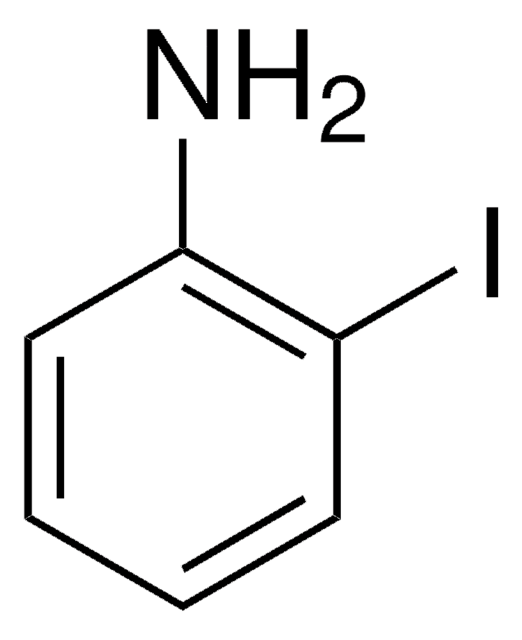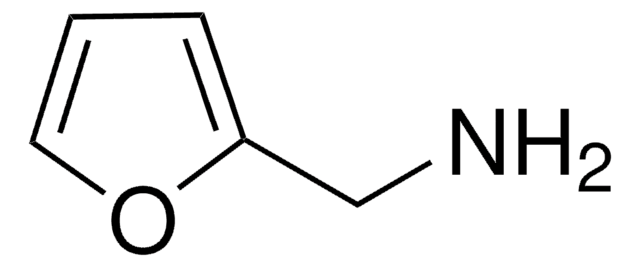196940
1-(2-Aminophenyl)pyrrole
≥98%
Se connecterpour consulter vos tarifs contractuels et ceux de votre entreprise/organisme
About This Item
Formule empirique (notation de Hill):
C10H10N2
Numéro CAS:
Poids moléculaire :
158.20
Numéro CE :
Numéro MDL:
Code UNSPSC :
12352100
ID de substance PubChem :
Nomenclature NACRES :
NA.22
Produits recommandés
Pureté
≥98%
Forme
solid
Pf
96-98 °C (lit.)
Chaîne SMILES
Nc1ccccc1-n2cccc2
InChI
1S/C10H10N2/c11-9-5-1-2-6-10(9)12-7-3-4-8-12/h1-8H,11H2
Clé InChI
GDMZHPUPLWQIBD-UHFFFAOYSA-N
Description générale
1-(2-Aminophenyl)pyrrole participates in Pt(IV)-catalyzed hydroamination triggered cyclization reaction to yield fused pyrrolo [1,2-a] quinoxalines. It reacts with aromatic or heteroaromatic aldehydes in ethanol and catalytic amounts of acetic acid to yield 4,5-dihydropyrrolo[1,2-a]quinoxalines. Thin films of poly(1-(2-aminophenyl)pyrrole) has been prepared via oxidative electropolymerization.
Application
1-(2-Aminophenyl)pyrrole was used in the synthesis of 4-substituted pyrrolo[1,2-a]quinoxaline derivatives.
Mention d'avertissement
Warning
Mentions de danger
Classification des risques
Acute Tox. 4 Oral - Eye Irrit. 2 - Skin Irrit. 2 - STOT SE 3
Organes cibles
Respiratory system
Code de la classe de stockage
11 - Combustible Solids
Classe de danger pour l'eau (WGK)
WGK 3
Point d'éclair (°F)
Not applicable
Point d'éclair (°C)
Not applicable
Équipement de protection individuelle
dust mask type N95 (US), Eyeshields, Gloves
Faites votre choix parmi les versions les plus récentes :
Déjà en possession de ce produit ?
Retrouvez la documentation relative aux produits que vous avez récemment achetés dans la Bibliothèque de documents.
Les clients ont également consulté
Nitin T Patil et al.
The Journal of organic chemistry, 75(10), 3371-3380 (2010-04-16)
A PtCl(4)-catalyzed hydroamination-triggered cyclization strategy to access biologically interesting N-containing heterocycles such as pyrrolo[1,2-a]quinoxalines, indolo[1,2-a]quinoxalines, and indolo[3,2-c]quinolines is described. The reaction makes use of aminoaromatics such as 1-(2-aminophenyl)pyrroles, N-(2-aminophenyl)indoles, 2-(2-aminophenyl)indoles, and alkynes having a tethered hydroxyl group. Mechanistically, the reaction
Jean Guillon et al.
Bioorganic & medicinal chemistry, 15(1), 194-210 (2006-10-20)
An original series of 4-substituted pyrrolo[1,2-a]quinoxaline derivatives, new structural analogues of Galipea species quinoline alkaloids, was synthesized from various substituted 2-nitroanilines via multistep heterocyclizations and tested for in vitro antiparasitic activity upon Leishmania amazonensis and Leishmania infantum strains. Structure-activity relationships
Photoelectrochemical studies on poly [1-(2-aminophenyl) pyrrole]-Creation of a photoactive inorganic-organic semiconductor interface (IOI).
Kasem KK, et al.
Canadian Journal of Chemistry, 87(8), 1109-1116 (2009)
A Versatile Synthesis of 4, 5-Dihydropyrrolo [1, 2-a] quinoxalines.
Abonia R, et al.
Journal of Heterocyclic Chemistry, 38(3), 671-674 (2001)
Notre équipe de scientifiques dispose d'une expérience dans tous les secteurs de la recherche, notamment en sciences de la vie, science des matériaux, synthèse chimique, chromatographie, analyse et dans de nombreux autres domaines..
Contacter notre Service technique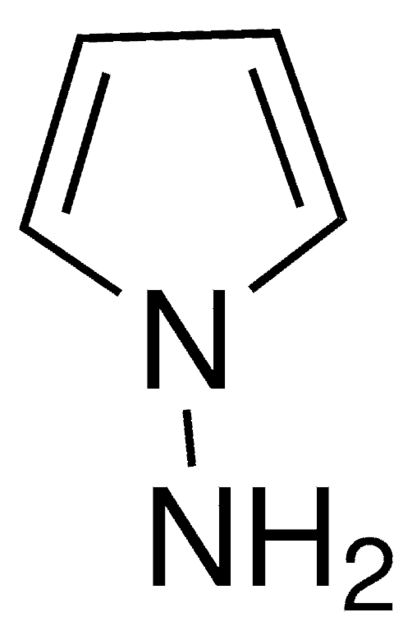
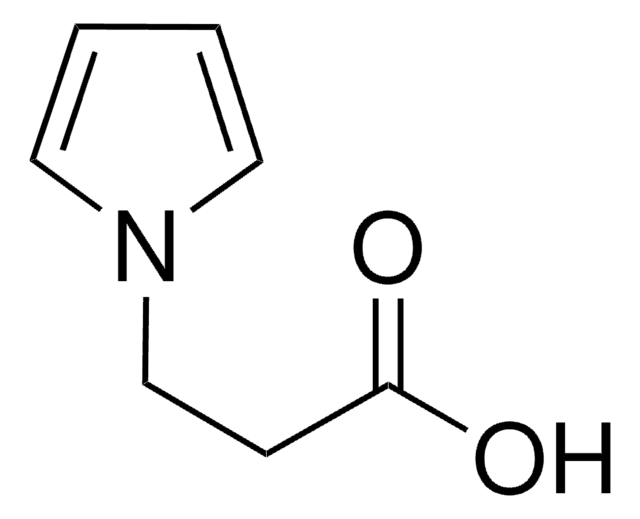
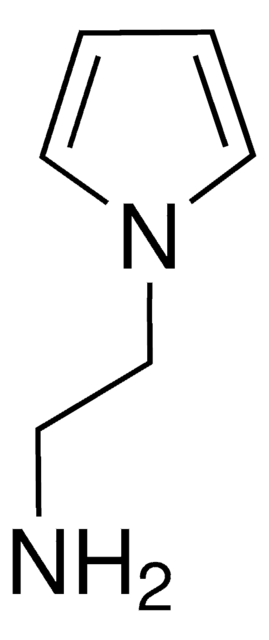
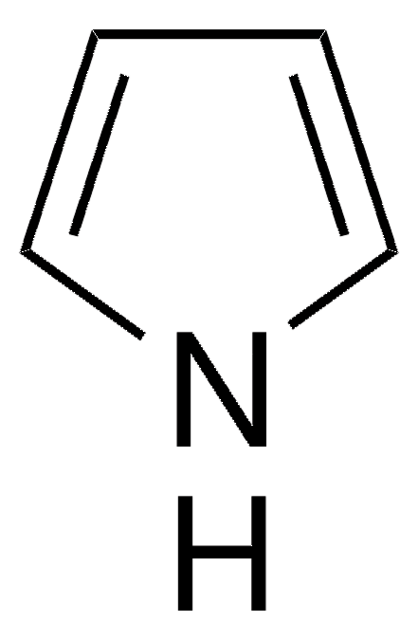
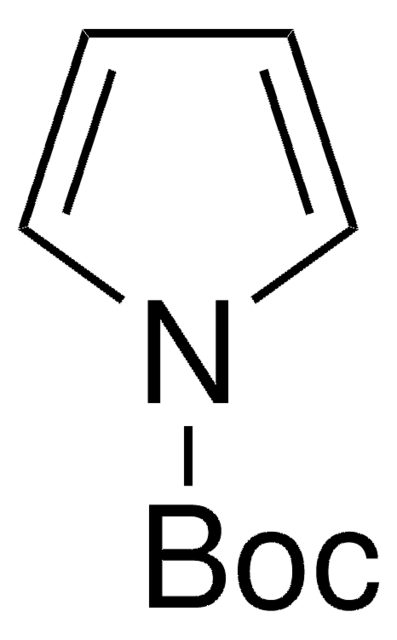
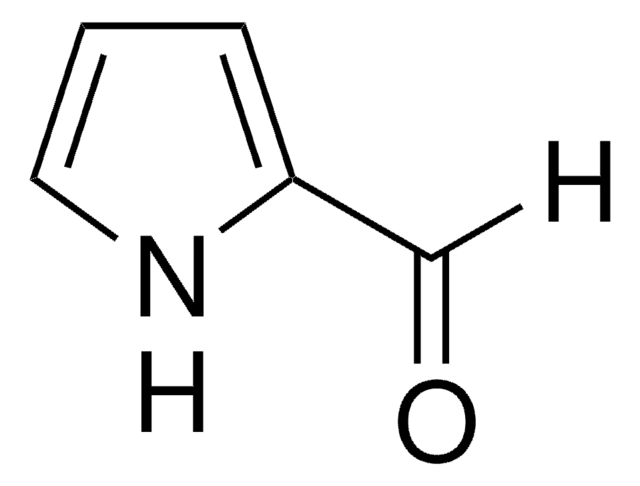
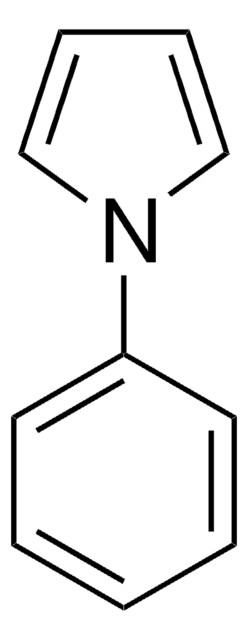
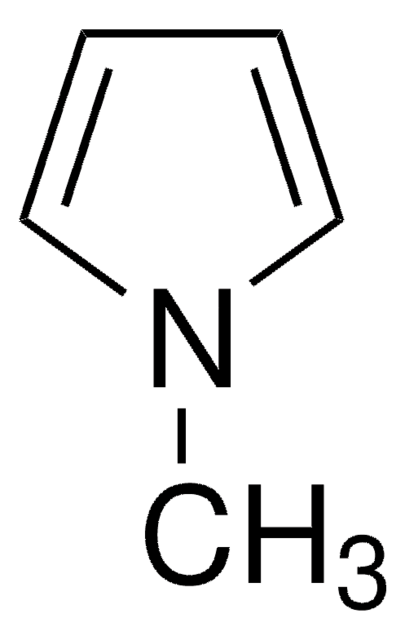
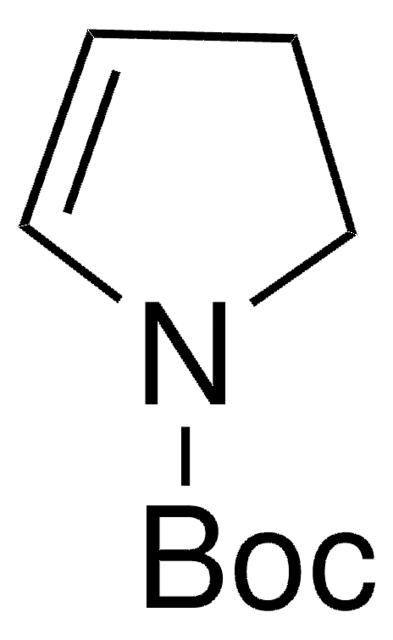
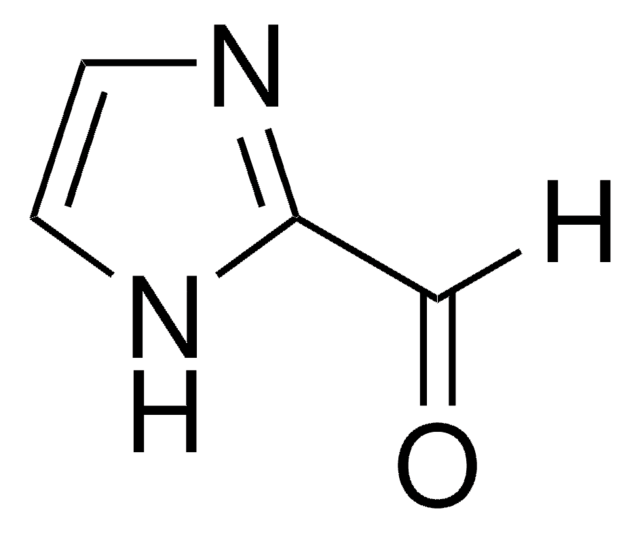

![Potassium tetrakis[3,5-bis(trifluoromethyl)phenyl]borate Selectophore™](/deepweb/assets/sigmaaldrich/product/structures/631/130/b5486f44-2e69-40d0-902f-dd71894a6add/640/b5486f44-2e69-40d0-902f-dd71894a6add.png)
